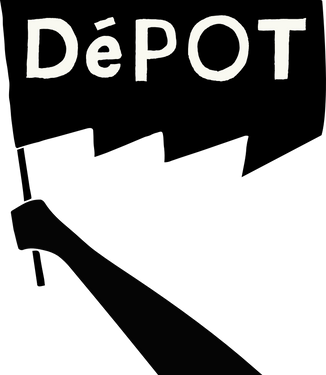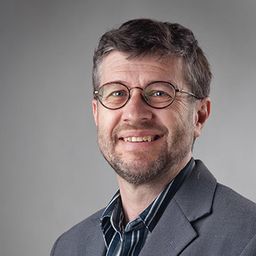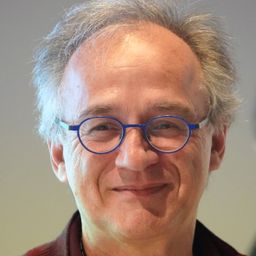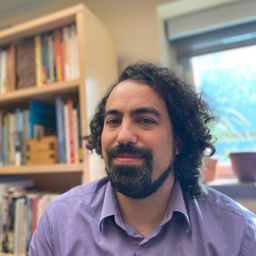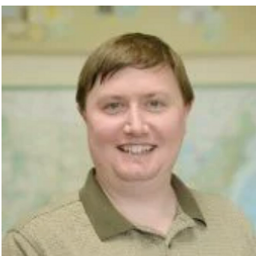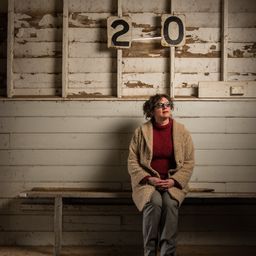
Dr Monika Schott is a writer, researcher and engagement specialist. Monika focuses her work on industrial communities and those that have been abjected, isolated and marginalised, to give voice to those that are not heard. She wrote the social history of Melbourne’s sewerage farm community in an avant-garde style of literary nonfiction, The faraway land of the house and two cows, and as a song, The faraway land. Her scholarship funded research in sewerage ghost towns in Australia and Europe gave new understandings on how these communities flourish in their abject margins and what happens once they disband. Monika was shortlisted in the Ada Cambridge Writing Prize, has several short stories published in anthologies and presents regularly at international forums.
Monika is being funded to undertake research to uncover the history, personalities and science of the State Research Farm in Melbourne, Australia, in collaboration with the Wyndham Community Cultural Foundation. The past industrial site is of state heritage significance for scientific research and advancement of agricultural practices in Australia, and illustrates a change from European agricultural practices to practices specific to Australia's climate and conditions.
Documents
Sessions auxquelles Monika Schott participe
Mardi 30 Août, 2022
Sessions auxquelles Monika Schott assiste
Dimanche 28 Août, 2022
Vous êtes invités au lancement du livre "Deindustrializing Montreal : Entangled Histories of Race, Residence and Class" le dimanche 28 août (13h-15h) à la brasserie Les Sans Taverne du Batiment 7 (1900 rue Le Ber) à Pointe-Saint-Charles. Deindustrializing Montre...
Joignez-vous aux organisateurs du congrès et aux membres du board de TICCIH pour un cocktail de bienvenue et quelques mots festifs de présentation, dans l’ancienne forge de l’École technique de Montréal, fondée en 1909, aujourd’hui intégrée au campus de l’Université du Québec à Montréal.
Lundi 29 Août, 2022
This session presents case studies and policy reviews that contribute to ongoing debate and international dialogue on the role of planning systems and conservation practices in addressing the challenges of citizen engagement—conserving local interests, place attachments alongside physical remnants of industrial heritage. Over the past half century, we have witnessed the development and changing focuses of urban planning and conservation discourses addressing industrial heritage. Relevant p...
Industrialization processes have been global from their very beginning. However, their interpretation still tends to be limited to specific locations or regions, and to specific time periods. Regularly, for example, it is stated that the industrial revolution started in Europe, from where it spread to the world, supposedly bringing technological and social progress to „less developed“ countries. Earlier periods of technology and knowledge transfer processes, that were already in place in t...
This session presents case studies and policy reviews that contribute to ongoing debate and international dialogue on the role of planning systems and conservation practices in addressing the challenges of citizen engagement—conserving local interests, place attachments alongside physical remnants of industrial heritage. Over the past half century, we have witnessed the development and changing focuses of urban planning and conservation discourses addressing industrial heritage. Relevant p...
This session presents case studies and policy reviews that contribute to ongoing debate and international dialogue on the role of planning systems and conservation practices in addressing the challenges of citizen engagement—conserving local interests, place attachments alongside physical remnants of industrial heritage. Over the past half century, we have witnessed the development and changing focuses of urban planning and conservation discourses addressing industrial heritage. Relevant p...
Dans une ambiance traditionnelle du temps des sucres québécois, profitez d’une tire d’érable roulée sur neige dans la plus pure tradition, accompagnée d’une musique de circonstance !
Si la vallée du canal de Lachine a été le berceau de l’industrialisation canadienne, la géographie industrielle métropolitaine ne s’y est pas confinée, peu s’en faut, Outre les grandes concentrations d’entreprises des quartiers centraux, elle est constituée des réseaux infrastructuraux, d’une douzaine de centrales hydroélectriques et des ensembles manufacturiers disséminés dans une quinzaine de petites villes aujourd’hui intégrées dans l’aire métropolitaine. La conférence proposera un surv...
Joignez-vous à nous pour poursuivre de manière informelle la discussion lancée lors de la conférence publique.Une consommation sera offerte aux quinze premières personnes arrivées.
Mardi 30 Août, 2022
Drawing on case studies from diverse social, cultural, and political contexts the papers in this session discuss the different responses to maintaining and assessing not only the physical sustainability of industrial heritage but also the sustainability of its social values and meaning.
Industrialization processes have been global from their very beginning. However, their interpretation still tends to be limited to specific locations or regions, and to specific time periods. Regularly, for example, it is stated that the industrial revolution started in Europe, from where it spread to the world, supposedly bringing technological and social progress to „less developed“ countries. Earlier periods of technology and knowledge transfer processes, that were already in place in t...
It is widely accepted that understanding a historic place is a critical first step to guide subsequent management and conservation. Industrial sites present a number of challenges as understanding their form, function, design, boundaries, and conservation often requires a high degree of technical expertise and experience. In Canada, gaining this expertise and information sharing is hampered by a limited number of institutions offering training in industrial archaeology and the lack of a na...
Drawing on case studies from diverse social, cultural, and political contexts the papers in this session discuss the different responses to maintaining and assessing not only the physical sustainability of industrial heritage but also the sustainability of its social values and meaning.
Pendant cette pause déjeuner, vous pouvez venir discuter avec l'auteur de son dernier livre.Cette discussion aura lieu à la table DePOT, dans le hall principal de la conférence. DePOT fait référence au groupe "Deindustrialization and the Politics or our Time" ; on y examine les racines historiques et l'expérience vécue de la désindustrialisation ainsi que les réponses politiques à celle-ci. Il s'agit d'un projet de partenariat du CRSH regroupant 33 organisations partenaires et...
Pays continent, dont l’industrialisation s’est amorcée dès le 19e siècle, le Canada a vu à la faveur entre autres de la désindustrialisation et de la requalification urbaine, des pans importants de son patrimoine industriel être altérés ou encore détruits. Cela étant dit, même ainsi, il n’en demeure pas moins que ce pays possède encore aujourd’hui un patrimoine industriel significatif. Or, le Canada étant une confédération, la protection et la sauvegarde de cet héritage industri...
Drawing on case studies from diverse social, cultural, and political contexts the papers in this session discuss the different responses to maintaining and assessing not only the physical sustainability of industrial heritage but also the sustainability of its social values and meaning.
Les efforts visant à préserver le patrimoine industriel s'inscrivent dans un contexte socio-économique et politique précis. Mais qu'est-ce qui est préservé et pour qui ? Et, par ailleurs, quelle est la relation entre les sites du patrimoine industriel et les communautés ouvrières soumises à la désindustrialisation qui les jouxtent souvent ? Steven High examinera les façons dont la préservation du canal de Lachine à Montréal, le principal site du patrimoine i...
Joignez-vous à nous pour poursuivre de manière informelle la discussion lancée lors de la conférence publique.Une consommation sera offerte aux quinze premières personnes arrivées.
Mercredi 31 Août, 2022
Visite de l’exposition permanente : À cœur de jour, grandeurs et misères d’un quartier populaire, qui retrace l’histoire d’un des plus anciens quartiers industriel et ouvrier de Montréal. Découverte de l’ancien bain Généreux, bâtiment rappelant une époque ou la majorité des logements ouvriers n’avaient ni bain ni douche. Présentation de quelques éléments du patrimoine du quartier sur le trajet entre l’...
Industrialization processes have been global from their very beginning. However, their interpretation still tends to be limited to specific locations or regions, and to specific time periods. Regularly, for example, it is stated that the industrial revolution started in Europe, from where it spread to the world, supposedly bringing technological and social progress to „less developed“ countries. Earlier periods of technology and knowledge transfer processes, that were already in place in t...
L’Amérique du Nord compte un grand nombre de canaux historiques, qui ont été fermés à la navigation commerciale en raison notamment de l’évolution des transports (navire au plus fort tonnage, trains, camions, etc.). Si certains canaux historiques ont été comblés, oubliés ou désaffectés, plusieurs ont survécu, en entier ou en partie, devenant des sites patrimoniaux attractifs. Pour certains d’entre eux, le défi consiste à conjuguer la préservation des composantes historiques avec la nécessi...
The Global and Local Section of TICCIH aims to continue its collaborative work by organising a separate session within the framework of the 18th congress in Montreal, Canada. Following its previous sessions centred on various subjects at the Freiberg, Tampere, Taipei and Lille TICCIH conferences, this time the Section will focus on the identity of industrial civilisation in the post-communist countries in Central and Eastern Europe from the angle of its industrial heritage, lost or preserv...
Des exemples pris sur plusieurs continents, en Europe, en Amérique du Sud, en Amérique du Nord, en Turquie, montrent des permanences fortes dans les objectifs qui président à la réutilisation des bâtiments industriels, par exemple le soucis de prendre en compte le patrimoine industriel comme une ressource pour le développement urbain et territorial ou encore les liens étroits qu’il entretient avec la culture, qu’il s’agisse de son utilisation pour abriter des équipements culturels ou plus ...
This session brings together a set of studies focused on the uses adaptative reuses (and even replications) of industrial heritage in the larger context of its urban and social landscapes. Urban industrial memory, its social and territorial impacts, as well as its conservation and promotion, will be discussed from a variety of case studies ranging from Central and Southern Europe to Turkey, China and North America. The interdisciplinary approaches underlying each of the studies will also b...
Le canal de Soulanges est une infrastructure, localisée sur la rive nord du Saint-Laurent, qui a été ouverte au trafic maritime en 1900, succédant alors au « vieux canal » de Beauharnois (établi depuis 1843 sur la rive nord du Saint-Laurent). Le canal de Soulanges a été abandonné en 1959, alors que s’ouvrait l’actuelle Voie maritime du Saint-Laurent qui relie les Grands Lacs à l’Atlantique. La conception du canal de Soulanges est due à l’ingénieur Thomas Monro (1831-1...
This session addresses a perpetuating disjunction between conceptualisation of heritage and heritage making in heritage studies vis-a-vis heritage management and conservation of industrial heritage sites. There is an inevitable impact of this disjunction on advancing policy in people- and place-centred approaches to heritage futures. This session aims to explore ways in which tangible and intangible traces of the past can be utilised creatively in shaping desirable places to dwell and work...
Ce tour propose une excursion sur un pont privatisé du bateau-mouche de Montréal; une visite commentée ludique permet de découvrir quelques hauts-lieux du paysage industriel de la ville depuis le fleuve Saint-Laurent. La visite est tarifée pour couvrir les frais supplémentaires; le tarif inclut l'accès au bateau-mouche, l'excursion et une boisson.Le départ se fera à pied depuis le lieu d...
In this lecture, I would like to talk about deindustrialised communities, heritage and memory in the context of right-wing populism. Drawing on studies of memory and heritage, I argue that right-wing populists have cornered the market on talking about the past of deindustrialised communities. They have successfully misrepresented this rich and complex history to fuel rage, resentment, fear and reactionary nostalgia. Indeed, ‘the past’, and in particular the industr...
Jeudi 1 Septembre, 2022
De sa construction à sa restauration, plongez dans l’histoire et le présent de ce lieu incontournable du patrimoine industriel canadien. Voie maritime centrale au pays, port intérieur majeur, le Lowell canadien (recours à l’énergie hydraulique), berceau de l’industrialisation, Smokey Valley (recours à la vapeur), haut lieu de l’industrie manufacturière, le canal de Lachine est tout cela et plus encore. Car, il est également un lieu historique national où, depuis la réouverture du canal à l...
This session addresses a perpetuating disjunction between conceptualisation of heritage and heritage making in heritage studies vis-a-vis heritage management and conservation of industrial heritage sites. There is an inevitable impact of this disjunction on advancing policy in people- and place-centred approaches to heritage futures. This session aims to explore ways in which tangible and intangible traces of the past can be utilised creatively in shaping desirable places to dwell and work...
The Bata Company, which evolved from a small workshop in Zlin in the former Austro-Hungarian Empire, today being part of the Czech Republic, at the end of the 19th century, became one of the best-known largest shoe producers in the world in the second half of the twentieth century. The company was not characterised by the unique organisational structure and implementation of disruptive innovations only. Also, it is connected with significant investments in the social life of its employees....
This session will bring together four specialists in the history of the production of oil and petroleum, natural gas, coal and nuclear energy, to debate the distinct as well as shared issues around the study and protection of their industrial heritage. The history of energy production is characterized by groundbreaking technological advances and achievements, enormous technological, social and environmental consequences, and the evolution of distinctive landscapes and communiti...
This paper argues that practice of urban heritage management seems insufficiently developed for capturing the distinctiveness of a place, including its social and experiential values, as well as concerning its functional dimensions (Taylor, 2016). A problem of adaptation and re-use is of particular concern if we address heritage future of post-industrial sites. Despite a recent call for an improvement of informal tools of design governance, within the integrated ...
The use of industrial heritage is a profoundly important factor in the process of creating a sustainable economic, social, and political future for many communities occupying industrial heritage landscapes. More than ever we recognize the need for such communities to be capable of shaping and expressing their heritage in different forms in the context of current events and issues, and in doing so to inform both contemporary decision-making as well as the way their industrial heritage is re...
This session addresses a perpetuating disjunction between conceptualisation of heritage and heritage making in heritage studies vis-a-vis heritage management and conservation of industrial heritage sites. There is an inevitable impact of this disjunction on advancing policy in people- and place-centred approaches to heritage futures. This session aims to explore ways in which tangible and intangible traces of the past can be utilised creatively in shaping desirable places to dwell and work...
The Bata Company, which evolved from a small workshop in Zlin in the former Austro-Hungarian Empire, today being part of the Czech Republic, at the end of the 19th century, became one of the best-known largest shoe producers in the world in the second half of the twentieth century. The company was not characterised by the unique organisational structure and implementation of disruptive innovations only. Also, it is connected with significant investments in the social life of its employees....
Meet the authors Heike Oevermann and Mark Watson, who together with Bartosz Walczak completed the TICCCIH comparative thematic study: “The Heritage of the Textile Industry” (Lodz, 2022),It may be downloaded free here: The Heritage of the Textile Industry (lodz.pl) or
This lecture will argue that the landscapes of industrial heritage that can be found in different parts of the world are directly related to the place-specific trajectories of deindustrialization. In other words: the different ways in which deindustrialization impacts on local communities has a direct bearing on the emergence of forms of industrial heritage. I will differentialte between deindustrialization paths and related industrial heritage regimes in a) Anglo-...
Vendredi 2 Septembre, 2022
In this meeting, TICCIH representatives from around the world will present work in the field of industrial heritage in their respective countries. The presentations are based on the national reports that TICCIH has gathered for the 2022 World Congress, but may emphasize particular matters. These can range across several fields where industrial heritage plays a role – from academic research and other forms of knowledge production, to heritage management a...
In this meeting, TICCIH representatives from around the world will present work in the field of industrial heritage in their respective countries. The presentations are based on the national reports that TICCIH has gathered for the 2022 World Congress, but may emphasize particular matters. These can range across several fields where industrial heritage plays a role – from academic research and other forms of knowledge production, to heritage management a...
At every World Congress, the international TICCIH community celebrates a General Assembly of its members. The event is open for any registered member of TICCIH, as well as the wider public. According to the current TICCIH Statutes (https://ticcih.org/about/statutes/), however, only Na...
In the refusal of people in communities abandoned by industrial capital to abandon their own places, we can read an implicit critique of the mobility and unaccountability of capital, raised by those who were once inside (however tenuously or uncomfortably) and now find themselves marginalized, “left behind.” The desire to catch up again, whether through attracting new investment or transvaluing abandoned sites as tourist attractions, makes this an essentially conservative critique that is ...
Venez échanger sur les bons moments du congrès et célébrer vos découvertes scientifiques et professionnelles dans une ancienne fabrique de confiture de fruits, l’Usine C, construite en 1913 et transformée à la fin des années 1970 en lieu de création et de diffusion.Découvrez la gastronomie montréalaise grâce à un traiteur d’exception. Apprenez des bribes du patrimoine musical montréalais et de l’histoire du quartier industriel qui lui a prêté vie. Puis entendez et vivez la tradition...
